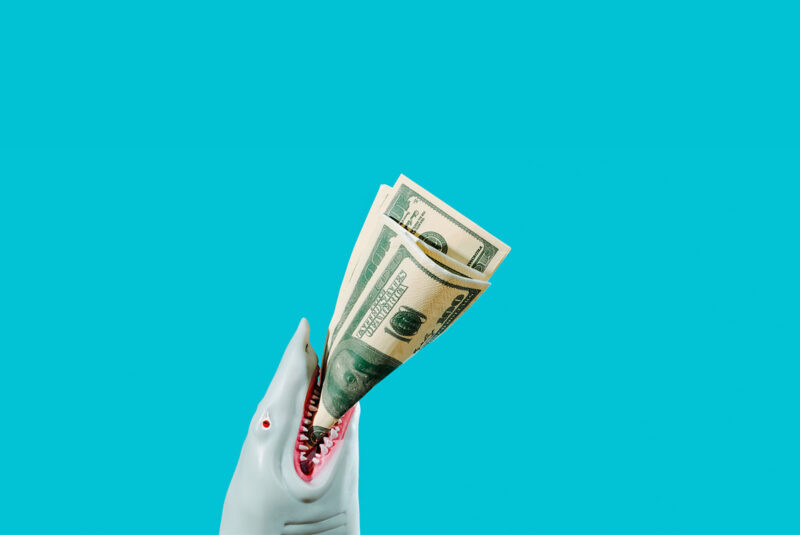Explore your mortgage options
If you need cash in a hurry, a personal loan is one of the most flexible options available. That flexibility extends to how you repay the loan.
The moniker “short-term personal loan” describes the repayment period for the loan. In this article, we’ll explain how they work and go over the pros and cons of this loan structure so that you can decide for yourself if it’s something you’d like to pursue.
Need Cash?
Applying for a personal loan has never been easier. Get the cash you need with competitive terms from Rocket LoansSM.
Checking your options won’t affect your credit score.
What Is a Short-Term Personal Loan?
A short-term personal loan is a personal loan that comes with a repayment period of 24 months or less. In other words, after you get the loan (usually in a lump sum) you have 2 years or less to pay it back with interest.
Two years can seem like a long time, but in terms of a loan, that’s an aggressive repayment timeline. Personal loans can have repayment terms that extend up to 7 years. Condensing the repayment timeline will have a big impact on your monthly payment as well as what you pay in interest over the life of the loan.
How do short-term personal loans work?
Structurally, they work the same way as any other unsecured personal loan. First, you’ll choose a lender and apply for the loan.
The lender will review factors like your credit score and your debt-to-income ratio (DTI) to decide whether or not to issue the loan.
If you’re approved, you’ll need to pay some lender fees (like the origination fee) in order to receive the money. Then, the funds are usually transferred as a lump sum payment.
After receiving the loan, you’ll start repaying it via recurring monthly payments that last for the duration of your loan term. Assuming you make all your payments in full and on time, your loan will be completely paid off at the end of the term.
Should You Consider a Short-Term Personal Loan?
If you still think a short-term personal loan might be right for you, we’ve put together a list of the advantages and disadvantages of this loan structure to help you decide.
PROS of short-term personal loans👍
A shorter loan term will save you on interest over the life of the loan compared to repaying the same principal amount over a longer time period.
The specifics will depend on your lender. But generally speaking, short-term personal loans are less likely to come with prepayment penalties as part of the loan agreement.
You can receive the funds from a short-term personal loan quite quickly, possibly as soon as 1 business day. The funds are also versatile and can be used for almost anything.
CONS of short-term personal loans👎
The biggest downside to choosing a shorter loan term is that your repayment schedule is condensed. This translates into higher monthly payments.
Personal loans usually range from $2,000 to $45,000, with some fluctuation depending on the lender. With a short-term loan, you may be approved for less than you would with a regular personal loan term because of the higher monthly payments.
Personal loans are relatively easy to qualify for, but they can be as risky as other forms of debt. Combined with the higher monthly payment that comes with a short-term loan, that comes with a lot of risk if you cannot repay it. You could significantly damage your credit score and potentially face more severe consequences.
How To Get a Short-Term Personal Loan
The process of getting a short-term personal loan is relatively straightforward:
- Find a lender: Online lenders, banks and credit unions all offer personal loans. The trick is to find a lender that you’re comfortable with. Take the time to ask them questions and be sure to compare the annual percentage rate (APR) of each lender. That’s a metric that shows you what it’ll cost to borrow the money between interest and lender fees.
- Apply for the loan: Your lender will require supporting documentation as part of the application process. This can include things like proof of address, W-2s, bank statements and tax returns. One of the benefits of personal loans is that they can be issued quickly, so be sure to provide your lender with everything they need ASAP to expedite the process.
- Review the terms: If you’re approved for the loan, the lender should provide you with a personal loan agreement. This is a binding legal document that includes things like the loan amount, repayment schedule and any additional stipulations regarding things like prepayment penalties. Make sure you understand this document before signing it.
- Disbursement and repayment: Once you sign the loan agreement, the payment will be transferred to you in a lump sum. You’re now free to use it on whatever you need the funds for. You’ll start repaying the loan in recurring monthly payments per the schedule outlined in the loan agreement.
See What a Personal Loan Can Do for You
Our partners at Rocket LoansSM are ready to help.
Checking your options won’t affect your credit score.
Other Types of Short-Term Loans
If you need money in a hurry and feel confident that you’ll be able to repay it in a timely fashion, there are other short-term loan options for you to consider as well.
Payday loans
Payday loans are usually worth $500 or less and have extremely short repayment windows, usually 2 weeks. The idea is that the loan will hold you over until you receive your next paycheck, hence the name.
One of the biggest downsides of payday loans is that they come with some of the highest APRs of any loan type. However, they don’t check your credit score and they can be issued fast.
Payday alternative loans
Payday alternative loans (PAL) operate similarly to payday loans but are only offered by credit unions. They cost less than payday loans and come with the option for longer repayment timelines. However, credit unions only offer them to their members.
Cash advance
If you have a credit card, you can borrow money against your line of credit. This is known as a cash advance. You’ll then be responsible for paying it back on the next billing cycle. You can even use your credit card to draw cash at an ATM.
The practice isn’t recommended because of the high APRs banks charge as well as the potential damage to your credit utilization ratio, which is an important factor in your credit score.
Short-Term Personal Loan FAQs
This varies from lender to lender, but you’ll be hard-pressed to find reputable lenders offering repayment terms that are less than 6 months.
There are options available for those with weaker credit scores. But you’ll owe more on interest and you might be approved for a smaller loan amount. If you can afford to wait, it might make more sense to focus on improving your credit before applying for the loan.
Your credit score will be negatively affected. If your debt goes to a collections agency, they could take legal action against you.
It’s possible, but not recommended. You will need to be able to pay the loans back. Lenders will also review your DTI ratio as part of the application process. Any outstanding loans you have will show up there and be included in their decision to issue you the loan or not.
Final Thoughts on Short-Term Personal Loans
If you’re confident in the ability to make a higher monthly payment, a short-term loan can be a viable way to get the funds you need while saving as much interest as you can.
However, don’t be too hasty to rule out longer-term personal loans. They can still be issued quickly, they’re just as flexible in what you can use them for and your monthly payment will be lower.
Ready for a Personal Loan?
Applying through Rocket LoansSM is fast and easy.
Checking your options won’t affect your credit score.
The Short Version
- A short-term personal loan is a personal loan that comes with a repayment period of 24 months or less
- Pros of short-term personal loans include saving on interest and being less likely to face prepayment penalties. Cons include higher monthly payments and limited loan values
- Alternatives to short-term loans include payday loans, payday alternative loans and cash advances




